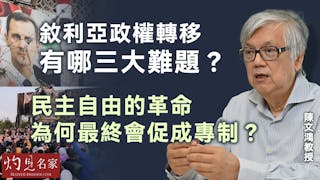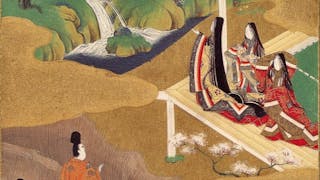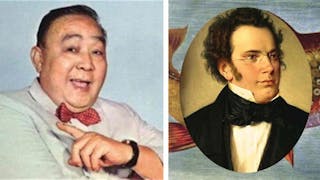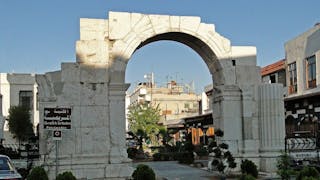Choice of words 很重要。
Big 和 large 两個字都籠統而且含義模糊;從最隨便的場合到最正式的場合都可以使用;不過在極為正式的語境中,我們傾向用 large 而不用 big。Big 特別指材料或實體(it is particularly relevant to material or bodily mass),而 large 只是暗示比正常標準的尺寸大得多;在這種情況下,large 這個字的含義,不像 big 那樣限於實體。
Big 和 large 的例子俯拾皆是:a big stone 大塊石頭,a big bully 欺凌弱小的大塊頭,a large house 一幢大房子,trying on a larger size shoe 試穿大一號的鞋子,the large issues confronting us 我們要棘手面對的重大事務。
Great 使用的場合,最著名的有中國的萬里長城(the Great Wall of China);美國人相當熟悉的文學名著《大亨小傳:了不起的蓋茨比》The Great Gatsby。Great 帶有一抹比 big 或 large 更了不起的、令人羡慕的濃厚感情色彩。
Big/Large/Great 三個同義的形容詞,常連用在一起的,最自然的搭配(natural collocations),分別是:
BIG man, house, car, boy, dog, smile, surprise, question, difference, fan.
LARGE number, part, area, room, company, eyes, family, volume, population.
GREAT success, majority, interest, importance, difficulty, problem, pleasure, beauty, artist, surprise.
最常見的 big 慣用語(idioms),包括:
a big cheese(在某個機構擔任重要位置或掌握大權的人):one who has an important and powerful position in an organization.
a big fish(很重要或有權有勢的人物)
a big fish in a small pond(小機構或小群體中最重要或最有影響力的人物)
a big gun(最重要,最有權力的人):the most important and powerful person in an organization.
a big mouth(多嘴,自吹自擂,愛吹牛的大嘴巴):a person who talks a lot, especially about himself or herself, and cannot keep secrets.
懦弱、胆小、不夠自信的男人則被戲稱為 a big girl’s blouse.
the big picture(是整個局面宏觀的視野):the situation as a whole. Right now forget the details and take a look at the big picture.
為表演者鼓掌,表示讚賞,你可以用:give someone a big hand. Let’s have a big hand, ladies and gentlemen, for our next performer.
To think big is to have ambitious plans and ideas; to talk big is to exaggerate and to tell people how good you are.
法國大散文家蒙田(Montaigne)說:大事不糊塗,小事必馬虎。英國小說家哥爾德斯密斯(Oliver Goldsmith)說:渺小的事在渺小的人看來是巨大的。
形容尺寸、數量、程度很小的字,倒有不少,最常見的两個是 small 和 little。
Small and little are general and informal words. Both may be used loosely and interchangeably。
Little suggests the more extreme departure from a norm(比正常尺寸小),而 a little man 又比 a small man 更小。
Small 描寫某樣物件在尺寸、程度、規模等方面不大的外表,和 little 的含義相同:a small sum of money, small hope of success, a small dealer。但 little 則往往可以暗示憐愛、温柔、關心等富感情色彩的意思:she is a nice little thing(她嬌小可人);what a pretty little house 則表示屋子雖細小但可愛。
Petty 和 Tiny 的分別:
petty 暗示某些東西微不足道(not large in size or amount),並不重要(unimportant),例子有:petty details(細節),petty regulations(細則),petty squabbles(小口角),a petty revenge(氣量小的報復行為),petty criminal(輕罪犯),petty thief(小竊賊),petty jury(小陪審團),相對於 grand jury(大陪審團)。
tiny 的意思是「很小」,細小而可愛:a tiny baby(纖弱的嬰兒),a tiny insect on the palm(手掌中的小昆蟲),it may also suggest a miniature(微型)or model of something: tiny toy soldiers(小兵士模型) 。
最常見的 small 慣用語(idioms),包括:
small potatoes(微不足道的事)
small beer(無足輕重的人;相比較之下,此事並不那麼重要)
small fry(小魚小蝦那樣不重要的小人物)
small change(零錢;小面值的硬幣)
small talk(閒談、聊天)
a small fortune(一筆相當大的金錢):a huge amount of money
it’s a small world(驚歎「這世界真小」,表示「我們又見面了」)
make someone feel small(刻意讓某人覺得自已很渺小或者他的表現很糟糕,尤其是在旁觀者面前)
the small print(小號印刷字體。因為合同、協議或廣告中,那些含有非常重要的法定限制性細則,字體經常總是很小。)
“Big Brother is watching you” – This quotation is from George Orwell’s Nineteen Eighty-Four (1984). Before Orwell, “Big Brother” was a synonym for kindly protection. After Orwell, this became a warning of the power that the authorities have over us. Now, the surveillance cameras in London and censorship Chinese style are examples.
本專欄逢周二、五刊登





































